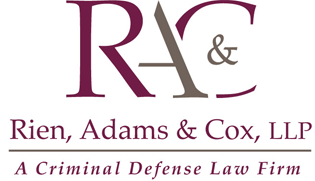Driving Under the Influence of Drugs is a Criminal Offense
Driving under the influence of drugs is investigated and prosecuted differently than alcohol-related DUIs, although both are called DUIs, and can result in the loss of your driver’s license and jail time.
At the Bay Area law firm of Rien, Adams & Cox, LLP, we have an in-depth understanding of the similarities and differences between alcohol and drug DUI offenses, and we can fight for you. We have helped numerous individuals like you protect their driving privileges and avoid other negative consequences.
How Drug DUI Offenses Differ From Alcohol DUI Offenses
DUIs involving alcohol usually involve a blood or breath test that yields a quantifiable blood alcohol level that police and law enforcement use in the prosecution of an individual. These numbers are not necessarily accurate, as contamination, improper storage and other issues often arise.
However, determining if someone is driving under the influence of drugs is arguably more challenging for law enforcement. For this reason, California maintains a Drug Recognition Expert (DRE) program. These law enforcement officials arrive on the scene when the police suspect a driver is under the influence of drugs. The DRE runs drivers through a series of tests that evaluate muscle tone, eyesight and pulse. If arrested, you will have to submit to a blood or urine test.
In evaluating whether the driver is guilty, prosecutors look at evidence that includes the DRE and arresting officer’s report, witness accounts, and blood or urine tests. These factors may help to prove or disprove the charge of driving under the influence of drugs.
Any Drug Can Lead To A DUI Charge
Any kind of drug that impairs a driver’s ability to properly handle a motor vehicle can potentially result in a DUI arrest — whether it is an over-the-counter medication, prescribed drug or illegal substance. Essentially, any substance that leads to sleepiness, hallucinations, slow reaction time, impaired depth perception and vision or compromised muscle coordination can be a problem.
The most common kinds of drugs resulting in a DUI arrest include:
- Antihistamines and decongestants such as Benadryl and NyQuil
- Sleeping pills such as Trazodone and Ambien
- Antidepressants and anti-anxiety medications such as Zoloft and Celexa
- Pain medications such as Vicodin and fentanyl
- Illegal drugs such as methamphetamine and heroin
- Marijuana, either taken medicinally or recreationally
Be Proactive About Your Defense
Because drug DUIs are often more complicated than alcohol DUIs, our attorneys may be able to argue that other factors were involved, such as fatigue or a pre-existing condition — or that the chemical tests indicated previous use rather than current use. Our lawyers will work hard to present your case persuasively, pointing out any mitigating factors and striving to get the charges dismissed or reduced.
The sooner you begin planning your defense strategy, the greater your chance of minimizing the consequences of your DUI charges. The team at Rien, Adams & Cox, LLP, is here to help you with that defense. Contact our Livermore office to schedule a free consultation: 925-449-0666.






